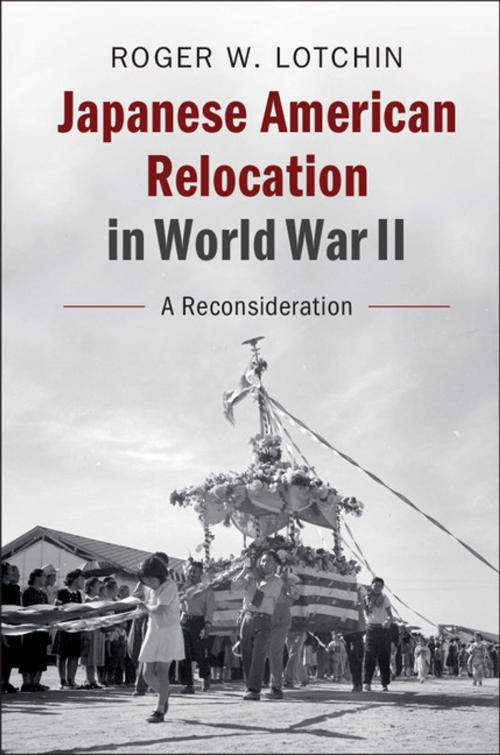Japanese American Relocation in World War II
A Reconsideration
Nonfiction, History, Americas, United States, 20th Century| Author: | Roger W. Lotchin | ISBN: | 9781108317573 |
| Publisher: | Cambridge University Press | Publication: | April 30, 2018 |
| Imprint: | Cambridge University Press | Language: | English |
| Author: | Roger W. Lotchin |
| ISBN: | 9781108317573 |
| Publisher: | Cambridge University Press |
| Publication: | April 30, 2018 |
| Imprint: | Cambridge University Press |
| Language: | English |
In this revisionist history of the United States government relocation of Japanese-American citizens during World War II, Roger W. Lotchin challenges the prevailing notion that racism was the cause of the creation of these centers. After unpacking the origins and meanings of American attitudes toward the Japanese-Americans, Lotchin then shows that Japanese relocation was a consequence of nationalism rather than racism. Lotchin also explores the conditions in the relocation centers and the experiences of those who lived there, with discussions on health, religion, recreation, economics, consumerism, and theater. He honors those affected by uncovering the complexity of how and why their relocation happened, and makes it clear that most Japanese-Americans never went to a relocation center. Written by a specialist in US home front studies, this book will be required reading for scholars and students of the American home front during World War II, Japanese relocation, and the history of Japanese immigrants in America.
In this revisionist history of the United States government relocation of Japanese-American citizens during World War II, Roger W. Lotchin challenges the prevailing notion that racism was the cause of the creation of these centers. After unpacking the origins and meanings of American attitudes toward the Japanese-Americans, Lotchin then shows that Japanese relocation was a consequence of nationalism rather than racism. Lotchin also explores the conditions in the relocation centers and the experiences of those who lived there, with discussions on health, religion, recreation, economics, consumerism, and theater. He honors those affected by uncovering the complexity of how and why their relocation happened, and makes it clear that most Japanese-Americans never went to a relocation center. Written by a specialist in US home front studies, this book will be required reading for scholars and students of the American home front during World War II, Japanese relocation, and the history of Japanese immigrants in America.















